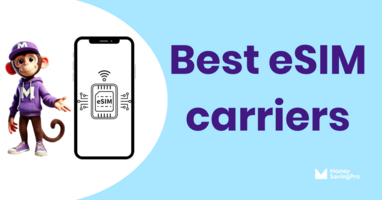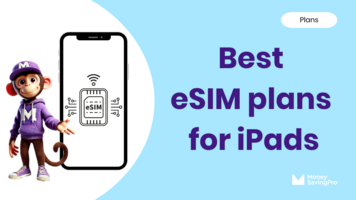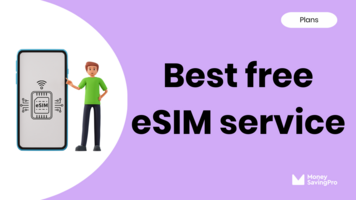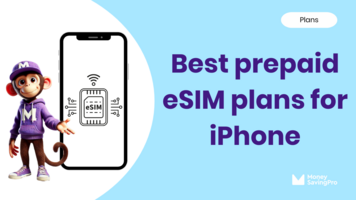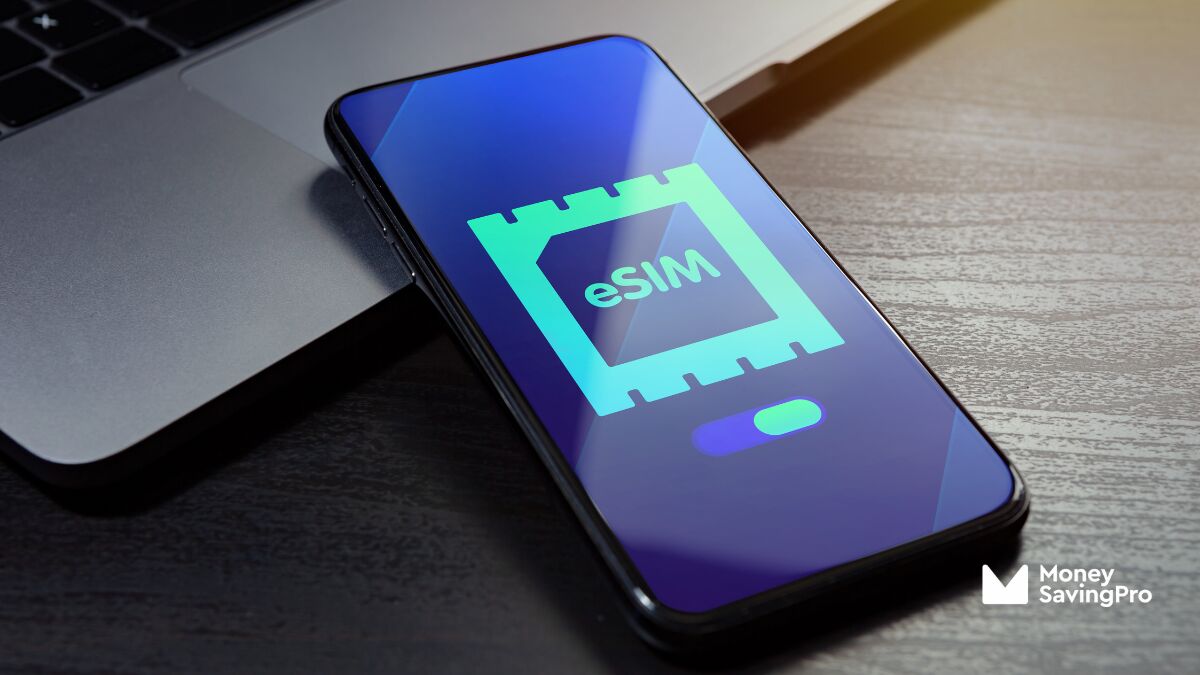
If you're tired of shelling out big bucks and want more flexibility with your cell phone plan, I'm here to tell you about the world of eSIMs.
A game-changing innovation that can help you save money while staying connected.
Whether you're a tech-savvy individual or just someone eager to cut down on your phone bill, keep reading to find out more about eSIM plans and how they work.
What is eSIM?
An eSIM is an embedded SIM card. Think of it as a digital SIM card that's built directly into your smartphone or device and eliminates the need for a physical SIM card.
This eSIM technology allows you to switch between mobile carriers without fumbling around with tiny pieces of plastic or finding the tool (or a paper clip) to pop open the SIM tray.
eSIM vs physical SIM card
The primary difference between an eSIM and a regular physical SIM card is that an eSIM is embedded, whereas a SIM card is removable.
A traditional SIM card is a little chip you insert into your phone's SIM card tray. However, eSIMs are integrated into your device's hardware. This means no more worrying about losing or misplacing your SIM card – it's all stored digitally.
How does an eSIM work?
Embedded SIM cards work just like traditional SIMs by giving your phone a connection to a cellular network.
When you sign up for a cell phone plan with an eSIM, your carrier will provide you with a QR code that contains all the necessary information to connect you to the mobile network.
Simply scan the code using your phone's camera app, follow the onscreen instructions, and voilà – you're connected!
This hassle-free activation process means you can switch carriers or plans with a few taps on your screen.
Dual SIM cards
Most newer phones can utilize both a traditional SIM card and an eSIM, apart from the iPhone 14 series, which has actually eliminated the need for physical SIM cards altogether. Their dual SIMs are both eSIMs.
Dual SIM cards are ideal if you need two lines on the same device, like an international plan for travel or a separate line for your business.
With a dual SIM phone, you can also easily switch to a new phone plan for a trial period without having to end service with your current provider.
Why should I switch to an eSIM?
Flexible data plans: One of the most significant benefits of eSIMs is their flexibility. With traditional SIM cards, you'd need to swap out cards to change your plan. eSIMs allow you to switch plans seamlessly within your device settings, making adjusting to your data needs easier than ever.
Global coverage: Traveling internationally? eSIMs are a jet-setter's dream. Instead of hunting for a local carrier SIM card, you can activate an eSIM with international carriers right from your phone. This can save you both time and money and ensures you're always connected no matter where you are in the world.
Dual eSIMs: Some newer smartphones now have dual SIM capabilities – one physical SIM slot and one eSIM. So you can have two different phone numbers or plans on a single device. It's perfect for separating work and personal numbers or maintaining a local and international line simultaneously.
How do I know if I have an eSIM-compatible phone?
Wondering if your current smartphone is eSIM-compatible?
Fortunately, it's easy to find out. Most smartphones released around 2018 onwards are equipped with eSIM capabilities. However, the surefire way to check if your devices support eSIM is to delve into your phone's settings.
- For iPhone users, head to Settings > Cellular and look for the "Add Cellular Plan" option. If you see this, your iPhone supports eSIMs.
- Android users can navigate to Settings > Network & Internet > Mobile Network. If you find an option to "Add carrier," your Android device is eSIM ready.
If your current cell phone doesn't support eSIM, don't worry. MVNOs, like Mint Mobile, offer the best cell phone deals with affordable monthly payment plans.
eSIM card FAQs
While eSIM adoption is rapidly growing, not all carriers offer eSIM plans yet. Make sure to check with your carrier before making the switch.
Yes. Whether switching phones or providers, you can transfer your phone number to your new plan.
Recap
In a world where flexibility and savings matter, eSIMs are changing the game.
Whether you're a frequent traveler, a budget-conscious consumer, or simply someone looking for a smarter way to stay connected, eSIMs are here to help you save money while staying connected like never before.
